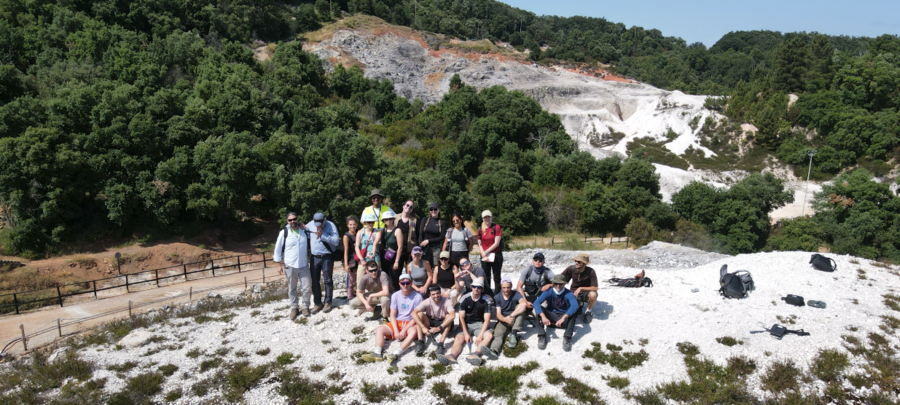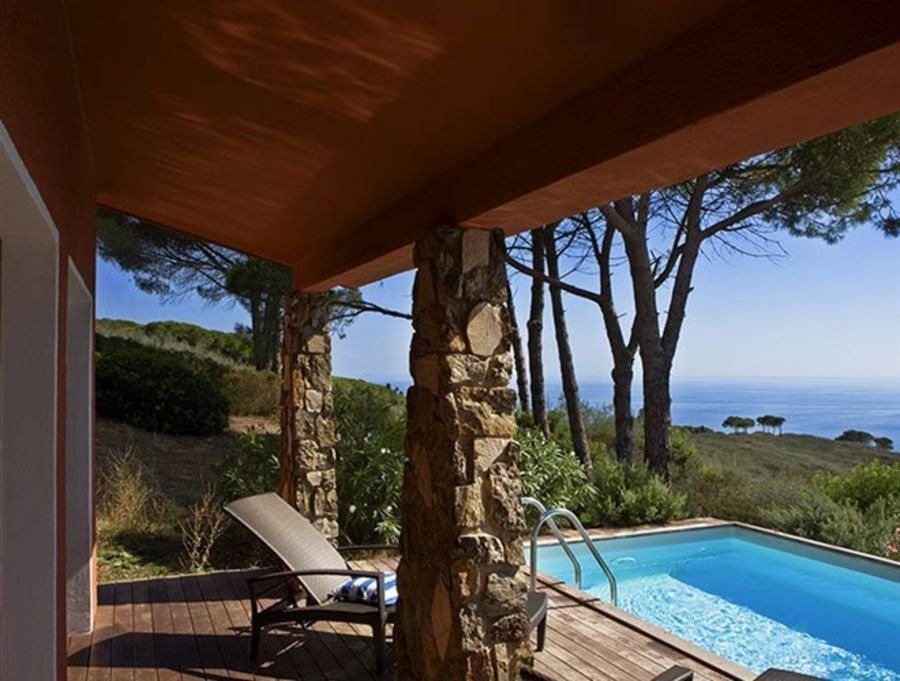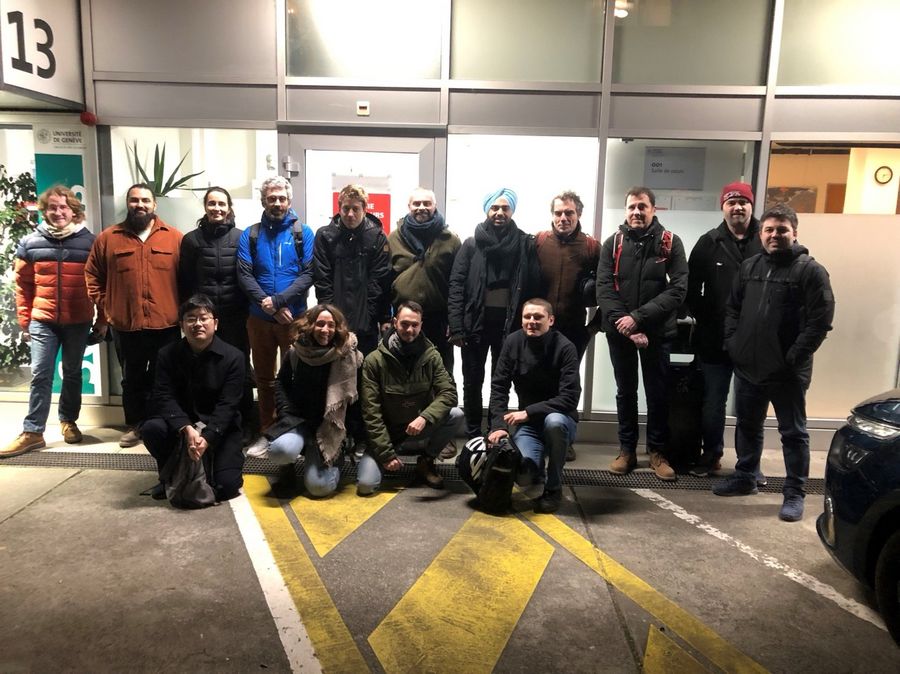Thematic schools and courses
Workshop on Computational Earth
12-17 October 2025, Elba Island, Italy.
Application to geothermal systems and crustal structures with passive seismic methods using machine learning.
Directors of the Workshop: Prof. Matteo Lupi, Prof. Alexandros Kalousis and Dr. Domenico Montanari
In the framework of the SNF Sinergia project MIGRATE: A Multidisciplinary and InteGRated Approach for geoThermal Exploration, link
We are happy to invite you to the workshop co-organised by the University of Geneva, the CNR of Florence and the Hes So of Geneva on:
Computational Earth:
Integrating geology, seismic tomography and machine learning

The workshop will take place at the Tenuta Ripalte, Elba Island, Italy, link from the 5th of October to the 10th of October 2025. The workshop is free and only living and transportation costs will have to be covered by the attendees. Note that the Swiss National Science Foundation supports the workshop with a financial program that has already being secured. Early career scientists and colleagues attending from low-income countries are welcome to apply to such a grant before the 15th of August. To do so please contact us (matteo.lupi@unige.ch) and we will inform you about the documents to provide. The costs for the living costs are reported below the agenda of the workshop.
To apply please send a message to matteo.lupi@unige.ch including a short motivation letter describing your current role and why you are interested in the summer school. If you want to apply to the supporting grant, please add a motivation also to cover this aspect. For any other additional information, please get in touch with us. We aim at designing an intimate workshop and hence we have a limited amount of available spots.
Program
The preliminary program is the following and will be populated in the coming weeks:
Sunday 5 October: arriving to location in Elba Island (various solutions possible, please contact the organising team (link).
Monday 6th of October: Ambient Noise Tomography
8:30 – Intro of the school, MIGRATE and scope of the workshop
8:40 Basic Concepts of Ambient Noise Tomography
9:10 Nodal Ambient Noise Tomography
9:40 Nodal Ambient Noise Tomography and Ambient Noise Attenuation Tomography
10:10 Challenges of Nodal Ambient Noise Tomography
10:40 Coffee and posters hanging
11:30 Presentation from attendees
12:10 Presentation from attendees
12:40 Lunch
14:00-18:00 Hands on session on NANT data processing: Curve picking (datasets are provided but personal datasets are also encouraged).
In this exercise, the attendees will be introduced to the task of manual (Rayleigh/Love waves group velocity) dispersion curve picking, where they will rapidly face the many associated challenges (time consuming, subjectivity, bias). In parallel, a deep neural network will perform the same task as a mean to show to the attendees how such model(s) could be used to save time and avoid biases.
In the second part of the session, manual (from attendees) and automatic (from cnn) dispersion curves will be compared and form the basis of a discussion centered on picks uncertainty, confidence, and useability for Nodal Ambient Noise Tomography.
NB: attendees are expected to bring their computer with matlab installed (or python at least). If possible in advance, attendees who can are invited to provide their own data (network configuration/coordinates, cross-correlation functions and/or group and phase velocity dispersion images) for this exercise. Please contact douglas.stumpp@unige.ch for further information.
Tuesday 7 of October: Computational Earth (talks 20 +10 questions):
8:30 – Introduction to generative models/SBI
9:00 Method and results on neural networks for curve picking
9:30 From group and phase velocity maps to AI-divern inversion methods. Architecture and workflow
10:00 Towards an end to end data processing, is this the way forward?
10:30 Coffee and posters hanging
11:30 Presentation from attendees
12:00 Presentation from attendees
12:30 Lunch
14:00-18:00 Hands on session on machine learning applied to NANT
Wednesday 8 October: Field trip
Isola d’Elba - from the heat source to the mineralizations depicting fluid flow.
We will explore the Island of Elba: an exhumed fossil analogue of the Larderello Geothermal Field, where high-temperature metamorphic rocks were intruded by granites and affected by mineralizing geothermal fluids. This field trip will guide you from the deep roots of a geothermal system, where intrusive rocks cause partial melting of metasediments and release fluids into the host rocks, to the geologic structures that channellize fluids into the lithosphere. We will look into metasomatic rocks produced by the interaction between hot fluids and their host rocks (veins, skarns, ore bodies, and hydrofracturing breccia) and the structures allowing fluid movement (fracture systems, faults, and folds). We will discuss how geological constraints and the geophysical data can be integrated to construct a reliable model of the underground.
Thursday 9 October: Seismicity, fluid flow and geological models: application of machine learning to geothermal challenges
8:30 – Presentation from attendees
9:00 High-Resolution Earthquake Catalogues Aided by Artificial Intelligence
9:30 Tomography across scales: imaging and seismic data
10:00 Feedback between current geophysical, geological and geothermal models
10:30 10:40 Coffee and posters hanging
11:30 Presentation from attendees
12:00 Presentation from attendees
12:30 Lunch
14:00-18:00 Hands on session on application of such methods for inversion problems
Friday 10 October
8:30 – Departing, trip to Larderello, session at the Larderello Museum on the Larderello-Travale-Amiata geothermal fields and brainstorming
Arrival in Pisa/Florence 5 pm
Living costs:
The organising commission set up special prices with La Tenuta le Ripalte, if booked in advance (i.e. before 15th of August with deposit). If cancellation up to September 14, refund can be provided.

The costs that have been secured for subscribers are the following:
45 Euros per person in all the available accommodations (these include glamping, room, hotel and apartments). Please visit the website of Le Ripalte link and inform us about your preferred choice. We will organise the booking together.
35 Euros for breakfast and dinner (i.e. 80 Euros per day half pension)
15 Euros for a buffet lunch (i.e. 90 Euros per day for full pension).
The SINERGIA project MIGRATE began in November 2022 and brings together the Machine Learning Team lead by Prof. Alexandros Kalousis at the Hes.so, the Group of Crustal Deformation and Fluid Flow (CDFF) at the University of Geneve lead by Prof. Matteo Lupi and Dr. Domenico Montanari and the Team from the IGG of Florence, Italy.
On the 2nd of February we had our first gathering. The day was marked by exciting presentations and lots of scientific questions unfolded.
